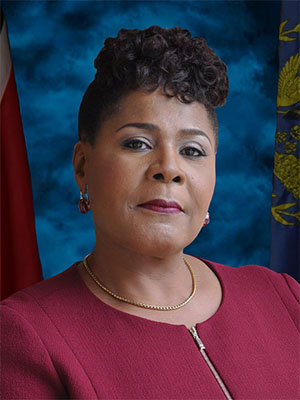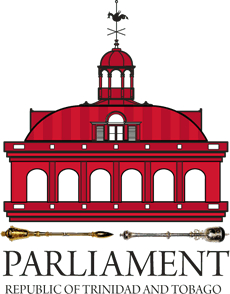The Trinidad and Tobago Republican Constitution provides for a President who is the Head of State and Commander in Chief of the Armed forces. He is also the repository of all Executive Authority. His powers are exercisable within certain constitutional limits and most of his constitutional acts must be performed in accordance with the advice of or after consultation with another authority, usually the Cabinet, the Prime Minister or the Leader of the Opposition. Although the President does not sit in Parliament, he is responsible for the summoning, prorogation and dissolution of Parliament and also gives his assent to Bills.
A person is qualified to be nominated for election as President if he is a citizen of Trinidad and Tobago of age thirty five years or upwards who, at the date of his nomination as President has been ordinarily resident in Trinidad and Tobago for ten years immediately preceding his nomination.
The Constitution provides for an Electoral College consisting of all the Members of the Senate and all the Members of the House of Representatives assembled together and convened and presided over by the Speaker of the House. The President is elected by the Electoral College voting by secret ballot. Ten Senators, the Speaker and twelve other Members of the House of Representatives constitute a quorum of the Electoral College. The President so elected shall normally hold office for a term of five years.
All Bills passed in both Houses of Parliament must be assented to by the President before they become law. The President also appoints Members of Commissions and other senior officials. He is also responsible for appointing Senators – sixteen on the advice of the Prime Minister, six on the advice of the Opposition Leader and nine on his own discretion.
Her Excellency Paula Mae Weekes
On Monday 19th March, 2018, Ms. Paula-Mae Weekes took the oath as the Sixth President of the Republic of Trinidad and Tobago, at an Inauguration Ceremony at the Queen’s Park Savannah, Port-of-Spain.
Two months earlier on January 19, 2018, the Electoral College of the Republic of Trinidad and Tobago elected Ms. Weekes as the Sixth President of the Republic of Trinidad and Tobago. Ms. Weekes is this country’s first female President.
When her name was submitted as a nominee, Ms. Weekes held the position of judge of the Turks and Caicos Islands Court of Appeal – a position she assumed on February 1, 2017 for a 3 year term.
Ms. Weekes is a former pupil of the Bishop Anstey High School, Port-of-Spain. In 1980 she attained a Bachelor of Laws Degree (Honours) at the University of the West Indies, Cave Hill Campus, Barbados, and in 1982 Ms. Weekes received a Legal Education Certificate from the Hugh Wooding Law School. She was called to the bar in 1982.

Ms. Weekes was employed as a State Counsel I – Senior State Counsel in the Office of the Director of Public Prosecutions from 1982 to 1993, after which she entered private practice engaged chiefly in criminal trial and appellate work.
In September of 1996 Ms. Weekes was appointed a Puisne Judge of the Supreme Court of Trinidad and Tobago (Criminal Jurisdiction). Ms. Weekes was the fifth woman to be appointed a Judge of the High Court in Trinidad and Tobago. She held this post until 2005 when she was elevated to a Justice of Appeal, retiring in 2016.
From August 1 to 11, 2012, Ms. Weekes would act as Chief Justice of Trinidad and Tobago for the first time, as the most senior of the appellate judges in the jurisdiction.
Ms. Weekes is a trained and experienced judicial educator having become a fellow of the Commonwealth Judicial Education Institute in 2000. She has designed and delivered programmes extensively in Trinidad and Tobago and also in the Organization of Eastern Caribbean States (OECS) and Jamaica over the years.
